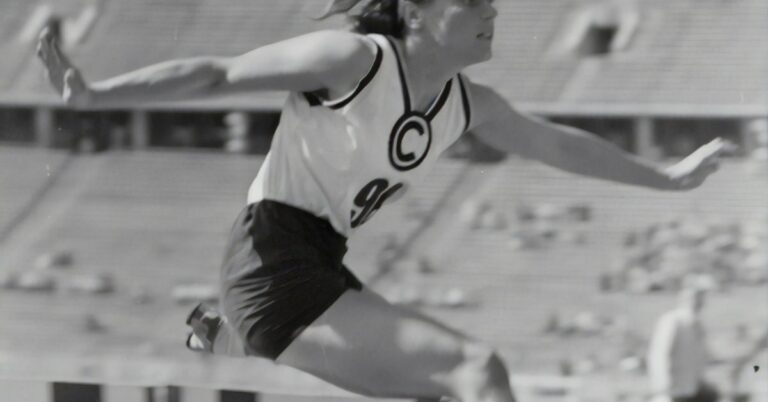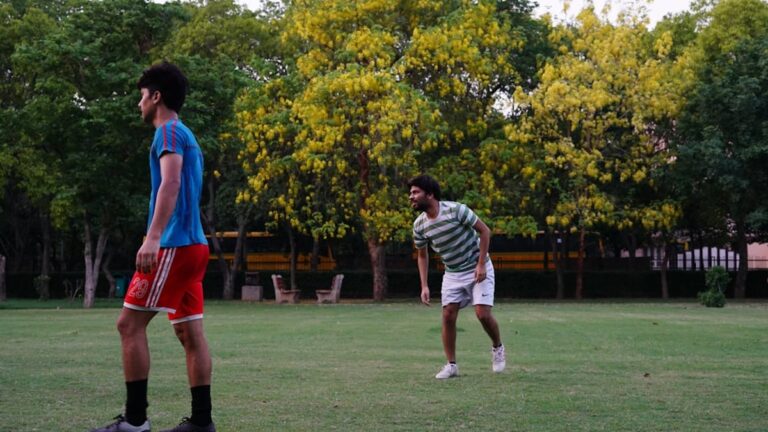Elevating Your Game with Mindfulness Techniques in Sports
Have you ever watched a professional athlete in the heat of competition, seemingly in a world of their own, fully absorbed in the moment? It’s a sight to behold—a dance between skill and the subconscious, where every move is executed with precision and grace. But what if I told you that one of the secrets to their success lies not just in physical training, but also in mindfulness? Yes, mindfulness—often associated with yoga mats and meditation cushions—is making significant waves in the world of sports. It might seem surprising at first, but the integration of mindfulness techniques into athletic training is transforming how athletes prepare, perform, and recover.
Understanding Mindfulness in Sports
Mindfulness, at its core, is the practice of being present and fully engaging with the current moment without judgment. It’s about tuning into your thoughts, feelings, and bodily sensations. In sports, this translates to an athlete’s ability to focus on the task at hand, manage stress, and perform under pressure. Research suggests that athletes who incorporate mindfulness techniques into their routines can see improved performance, reduced anxiety, and enhanced mental resilience.
Now, before you roll your eyes at the idea of “sitting on a cushion” to improve your game, consider this: I remember a time when a coach of mine (who was a staunch skeptic of anything resembling “fluff”) introduced breathing exercises before practice. Initially, we all thought it was a waste of time. But lo and behold, after a few weeks, our focus sharpened, and we were more in tune with our bodies. It struck me then that mindfulness isn’t just for yogis—it’s for anyone looking to elevate their performance.
The Science Behind Mindfulness and Performance
Studies have shown that mindfulness can lead to significant improvements in various aspects of athletic performance. For instance, a 2015 study published in the Journal of Sports Psychology indicated that athletes who practiced mindfulness reported higher levels of concentration and lower levels of performance anxiety. Interestingly, mindfulness also has physiological benefits—like lower heart rates and improved recovery times—which are crucial during high-stakes competitions.
One enlightening piece of research from the University of Exeter found that participants who engaged in mindfulness meditation showed increased resilience and better decision-making skills during stressful situations. Imagine being in the final moments of a game, the crowd roaring, and instead of succumbing to pressure, you maintain clarity and focus. That’s the power of mindfulness at work.
Mindfulness Techniques to Elevate Your Game
So, how can athletes—whether you’re a weekend warrior or an aspiring Olympian—incorporate mindfulness into their training? Here are some techniques that have proven effective:
- Breathing Exercises: Simple yet powerful, focusing on your breath can ground you in the moment. Try inhaling deeply for a count of four, holding for four, and exhaling for six. Repeat this for a few minutes before practice or competition.
- Body Scan Meditation: This involves mentally scanning your body for areas of tension or discomfort. Lie down comfortably, close your eyes, and focus on each part of your body, releasing tension as you go.
- Visualization: Great athletes often visualize their performance before it happens. Picture yourself executing perfect techniques, scoring that goal, or crossing the finish line—all while feeling confident and focused.
- Mindful Movement: Whether you’re running, swimming, or practicing your swing, pay attention to each movement. Notice how your body feels with every step, stroke, or swing. This can deepen your connection to the sport.
- Gratitude Journaling: At the end of each training session, jot down what you’re grateful for—this can foster a positive mindset and help you stay motivated.
These techniques might feel a bit quirky at first (trust me, I thought I’d never be the one doing deep breathing exercises in the middle of a busy gym). But, as with any skill, practice is key. The more you integrate these methods into your routine, the more natural they will feel.
Real-Life Examples: Athletes Who Embrace Mindfulness
Let’s take a look at some prominent athletes who have successfully integrated mindfulness into their training regimes. One name that frequently pops up is tennis superstar Novak Djokovic. Known for his incredible focus on the court, Djokovic credits much of his success to mindfulness practices, including meditation and yoga. He often speaks about how these techniques help him manage stress and stay present during critical points in matches. There’s a reason he’s one of the greatest to ever play the game.
Another example is Olympic gold medalist Michael Phelps. Phelps has openly discussed his struggles with anxiety and depression. To combat these challenges, he turned to mindfulness techniques, which he says helped him regain his focus and mental clarity. His story is a powerful reminder that mindfulness isn’t just about performance; it’s also about mental health and well-being.
Then there’s NBA superstar LeBron James, who practices mindfulness by focusing on the present moment during games. He’s known for his ability to maintain composure under pressure, which can be attributed to his mindful approach. It’s almost as if he’s playing chess while everyone else is playing checkers—always several moves ahead.
The Benefits Beyond Performance
While the performance benefits of mindfulness are undoubtedly compelling, the advantages extend far beyond the field or court. Mindfulness can foster a healthier relationship with your sport, reduce burnout, and enhance enjoyment. Remember when you first fell in love with your sport? That sense of joy and freedom can sometimes get lost in the pursuit of success. Mindfulness can help you reconnect with that feeling.
Moreover, athletes often face unique pressures that can lead to stress and anxiety. By practicing mindfulness, they can cultivate resilience, allowing them to bounce back from setbacks more effectively. This is crucial in a world where even the slightest mistake can be magnified. Mindfulness equips athletes with the tools to navigate these challenges and maintain a balanced perspective.
Overcoming Skepticism
Now, I can already hear some of you thinking, “This all sounds great, but will it really work for me?” It’s a fair question. I remember when I first heard about mindfulness techniques; I was skeptical. I mean, how could sitting quietly really help me run faster or hit harder? But here’s the kicker: mindfulness isn’t about changing who you are; it’s about enhancing what you already have. It’s akin to adding turbo to your engine—suddenly, you’re not just running; you’re flying.
Many athletes initially resist the idea of mindfulness because it feels foreign or too “New Age.” However, the beauty of mindfulness is that it’s versatile. You don’t have to adopt a full meditation routine; even small moments of mindfulness throughout your day can yield significant benefits. Perhaps during those grueling training sessions or while waiting for a game to start, just taking a few moments to breathe and center yourself can make all the difference.
Creating a Mindfulness Routine
Ready to give mindfulness a shot? Here’s how you can create a simple mindfulness routine:
- Start Small: Begin with just a few minutes each day. You could do this in the morning, before bed, or even during breaks in your training.
- Be Consistent: Like any skill, consistency is crucial. Try to incorporate mindfulness into your daily routine.
- Use Technology: There are numerous apps designed to help you practice mindfulness. Apps like Headspace or Calm can guide you through meditation sessions tailored to athletes.
- Find Your Space: Create a peaceful environment where you can practice mindfulness. It doesn’t have to be elaborate—a quiet corner in your home or a park bench will do.
- Share Your Practice: Engaging with teammates or fellow athletes can help you stay motivated. Consider starting a mindfulness group—nothing like a little camaraderie to keep you on track!
As you integrate these techniques, be patient with yourself. Results won’t come overnight, but with dedication, you’ll likely find yourself feeling more grounded, focused, and ready to elevate your game.
Conclusion: Mindfulness as a Game Changer
Incorporating mindfulness into athletic training isn’t just a passing trend—it’s a powerful tool that can enhance performance, improve mental health, and rekindle your passion for sport. Whether you’re a seasoned professional or just starting, the practice of mindfulness can provide you with a competitive edge that’s hard to ignore. It’s about more than just winning; it’s about enjoying the journey and finding balance in your life as an athlete.
So, the next time you step onto the field, court, or track, take a moment to breathe. Be present. Embrace the experience. You might just discover that the path to elevating your game starts with a single breath.
And who knows? You might even find yourself enjoying the process a little more—and isn’t that what sports are all about?













